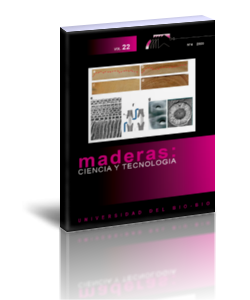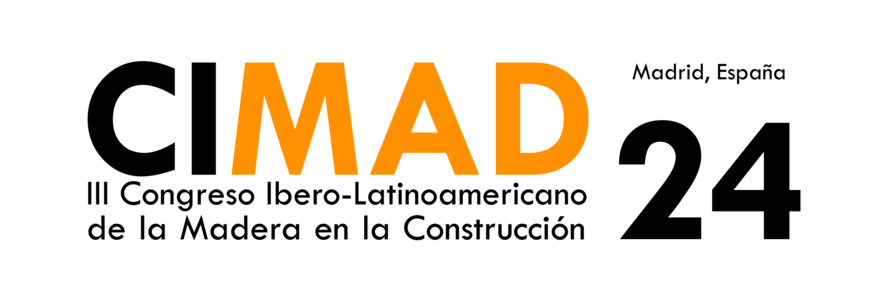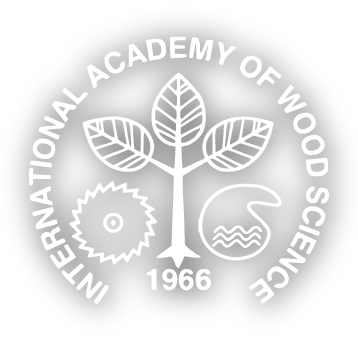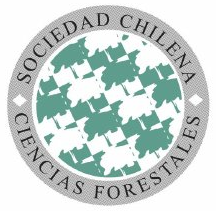Hydrothermal treatments to promote surface inactivation and increased flexibility in three hardwoods
Keywords:
Boiling, london plane, microwave, pecan, steaming, sycamoreAbstract
In the present study, three juvenile hardwoods (namely sycamore, pecan and london plane) were treated by boiling, steaming and microwave. Trees from Platanus x acerifolia (sycamore), Carya illinoinensis (pecan) and Luehea divaricata (london plane) were selected in homogeneous forests located in southern Brazil. Each hydrothermal treatment was performed for 60 min. In general, the hydrothermal treatments caused a certain surface inactivation effect, which was marked by decreased surface roughness, increased hydrophobic character and darkened colour patterns. Also, both decreased stiffness and strength, as well as increased deflectibility were obtained. These mechanisms were attributed to degradation in fine segments from amorphous polysaccharides, leaching of some organic extractives and fragmentation of lignin, as indirectly indicated by infrared spectra.
Downloads
References
American Society for Testing and Materials. ASTM. 2017. ASTM D5536: Standard practice for sampling forest trees for determination of clear wood properties. ASTM, West Conshohocken, USA. https://doi.org/10.1520/D5536-17
American Society for Testing and Materials. ASTM. 2014. ASTM D143: Standard test methods for small clear specimens of timber. ASTM, West Conshohocken, USA. https://doi.org/10.1520/D0143-14
Arnold, M. 2010. Effect of moisture on the bending properties of thermally modified beech and spruce. J Mater Sci 45(3): 669-680. https://doi.org/10.1007/s10853-009-3984-8
Aydin, I.; Demirkir, C. 2010. Activation of spruce wood surfaces by plasma treatment after long terms of natural surface inactivation. Plasma Chem Plasma Process 30(5): 697-706. https://doi.org/10.1007/s11090-010-9244-5
Biziks, V.; Acker, J.V.; Militz, H.; Grinins, J.; Bulcke J.V. 2019. Density and density profile changes in birch and spruce caused by thermos-hydro treatment measured by X-ray computed tomography. Wood Sci Technol 53(2): 491-504. https://doi.org/10.1007/s00226-018-1070-6
Boonstra, M.J.; Rijsdijk, J.F.; Sander, C.; Kegel, E.; Tjeerdsma, B.F.; Militz, M.; Van Acker, J.; Stevens, M. 2006. Microstructural and physical aspects of heat treated wood. Part 1. Softwoods. Maderas-Cienc Tecnol 8(3): 193-208. http://dx.doi.org/10.4067/S0718-221X2006000300006
Cademartori, P.H.G.; dos Santos, P.S.B.; Serrano, L.; Labidi, J.; Gatto, D.A. 2013. Effect of thermal treatment on physicochemical properties of Gympie messmate wood. Ind Crops Prod 45: 360-366. https://doi.org/10.1016/j.indcrop.2012.12.048
Delucis, R.A.; Stangerlin, D.M.; Beltrame, R.; Gatto, D.A. 2014a. Métodos de delimitação dos lenhos juvenil e adulto de três folhosas e propriedades biométricas de suas fibras. Rev Arvore 38(5): 943-950. http://dx.doi.org/10.1590/S0100-67622014000500019
Delucis, R.A.; Taborda, V.C.; Correa, L.W.; Vega, R.A.; Gatto, D.A. 2014b. Avaliação da cor dos lenhos juvenil e adulto de cedro por meio do método CIEL*A*B*. Tecnol Metal Mater Min 11(3): 251-259. http://dx.doi.org/10.4322/tmm.2014.037
Frybort, S.; Obersriebnig, M.; Müller, U.; Gindl-Altmutter, W.; Konnerth, J. 2014. Variability in surface polarity of wood by means of afm adhesion force mapping. Colloids Surf A 457: 82-87. https://doi.org/10.1016/j.colsurfa.2014.05.055
Gatto, D.A.; Haselein, C.R.; Santini, E.J.; Marchiori, J.N.C.; Durlo, M.A.; Calegari, L.; Stangerlin, D.M. 2008. Características tecnológicas das madeiras de Luehea divaricata, Carya illinoinensis e Platanus x acerifolia quando submetidas ao vergamento. Cienc Florest 18(1): 121-131. http://dx.doi.org/10.5902/19805098516
Gérardin, P.; Petrič, M.; Petrissans, M.; Lambert, J.; Ehrhrardt, J.J. 2007. Evolution of wood surface free energy after heat treatment. Polym Degrad Stab 92(4): 653-657. https://doi.org/10.1016/j.polymdegradstab.2007.01.016
Gündüz, G.; Korkut, S.; Korkut, D.S. 2008. The effects of heat treatment on physical and technological properties and surface roughness of camiyanı black pine (Pinus nigra Arn. Subsp. Pallasiana Var. Pallasiana) wood. Bioresour Technol 99(7): 2275-2280. http://dx.doi.org/10.1016/j.biortech.2007.05.015
Herrera R.; Xabier, E.; Llano-Pontes, R.; Labidi J. 2015. Chemical analysis of industrial-scale hydrothermal wood degraded by wood-rotting basidiomycetes and its action mechanisms. Polym Degrad Stab 117: 37-45. http://dx.doi.org/10.1016/j.polymdegradstab.2015.03.013
Huang, X., Kocaefe, D., Kocaefe, Y., Boluk, Y., Pichette, A. 2012. Changes in wettability of heat-treated wood due to artificial weathering. Wood Sci Technol 46: 1215-1237. https://doi.org/10.1007/s00226-012-0479-6
Hughes, M.; Hill, C.; Pfriem, A. 2015. The toughness of hygrothermally modified wood – a review. Holzforschung 69(7): 1-12. https://doi.org/10.1515/Hf-2014-0184
Japanese Industrial Standards. JIS. 2001. JIS B0621: Surface roughness. JIS, Tokyo, Japan.
Kim, J.Y.; Hwang, H.; Oh, S.; Kim, Y.S.; Kim, U.J.; Choi, J.W. 2014. Investigation of structural modification and thermal characteristics of lignin after heat treatment. Int J Biol Macromol 66: 57-65. https://doi.org/10.1016/j.ijbiomac.2014.02.013
Kiaei, M.; Kord, B.; Vaysi, R. 2014. Influence of residual lignin content on physical and mechanical properties of kraft pulp/PP composites. Maderas-Cienc Tecnol 16(4): 495- 503. https://doi.org/10.4067/S0718-221X2014005000040
Mattos, B.D.; de Cademartori, P.H.G.; Magalhães, W.L.E.; Lazzarotto. M.; Gatto, D.A. 2015. Thermal tools in the evaluation of decayed and weathered wood polymer composites prepared by in situ polymerization. J Therm Anal Calorim 121(3): 1263-1271. https://doi.org/10.1007/s10973-015-4647-4
Metsä-Kortelainen, S.; Viitanen, H. 2012. Wettability of sapwood and heartwood of thermally modified Norway spruce and scots pine. Eur J Wood Wood Prod 70: 135-139. https://doi.org/10.1007/s00107-011-0523-5
Ozarska, B.; Daian, G. 2010. Assessment of microwave bending capabilities for Australian wood species. For Prod J 60(1): 64-68. https://doi.org/10.13073/0015-7473-60.1.64
Pandey, K.A. 1999. Study of chemical structure of soft and hardwood and wood polymers by FTIR spectroscopy. J Appl Polym Sci 71(12): 1969-1975. https://doi.org/10.1002/(SICI)1097-4628(19990321)71:12<1969::AID-APP6>3.0.CO;2-D
Peres, M.L.; Delucis, R.A.; Gatto, D.A.; Beltrame, R. 2016. Mechanical behavior of wood species softened by microwave heating prior to bending. Eur J Wood Wood Prod 74(2): 143-149. https://doi.org/10.1007/s00107-015-0978-x
Piao, C.; Winandy, J.E.; Shupe, T.F. 2010. From hydrophilicity to hydrophobicity: A critical review: Part I. Wettability and surface behavior. Wood Fiber Sci 42(4): 490-510. https://wfs.swst.org/index.php/wfs/article/view/2144
Placet, V.; Passard, J.; Perré, P. 2008. Viscoelastic properties of wood across the grain measured under water-saturated conditions up to 135 ºC: evidence of thermal degradation. J Mater Sci 43(9): 3210-3217. https://doi.org/10.1007/s10853-008-2546-9
Romagnoli, M.; Segoloni, E.; Luna, M.; Margaritelli, A.; Gatti, M.; Santamaria, U.; Vinciguerra, V. 2013. Wood colour in lapacho (Tabebuia serratifolia): Chemical composition and industrial implications. Wood Sci Technol 47(4): 701-716. https://doi.org/10.1007/S00226-013-0534-Y
Tolvaj, L.; Papp, G.; Varga, D.; Lang. E. 2012. Effect of steaming on the colour change of softwoods. Bioresources 7(3): 2799-2808. https://bioresources.cnr.ncsu.edu/resources/effect-of-steaming-on-the-colour-change-of-softwoods/
Widmann, R., Fernandez-Cabo, J.L., Steiger, R. 2012. Mechanical properties of thermally modified beech timber for structural purposes. Eur J Wood Wood Prod 70: 775-784. https://doi.org/10.1007/s00107-012-0615-x

































